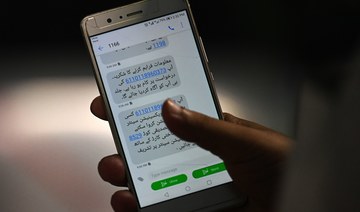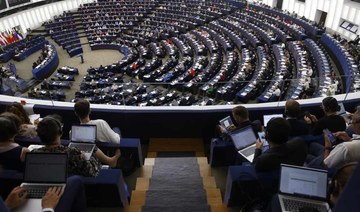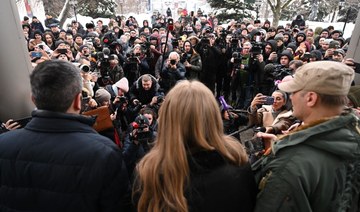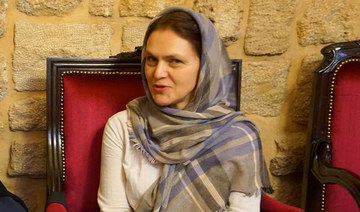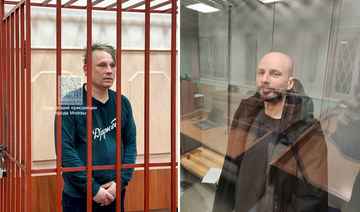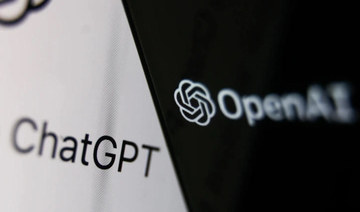SYDNEY: Australia’s competition watchdog is looking into a claim that Facebook Inc. refused a publisher’s request to negotiate a licensing deal, the regulator told Reuters, setting the stage for the first test of the world’s toughest online content law.
The Conversation, which publishes current affairs commentary by academics, said it asked Facebook to begin talks as required under new Australian legislation that requires the social media firm and Alphabet Inc’s Google to negotiate content-supply deals with media outlets.
Facebook declined without giving a reason, The Conversation said, even though the publisher was among the first in Australia to secure a similar deal with Google in the lead-up to the law in 2020.
The knockback could present the first test of a controversial mechanism unique to Australia’s effort to claw back advertising dollars from Google and Facebook: if they refuse to negotiate license fees with publishers, a government-appointed arbitrator may step in.
In a statement responding to Reuters questions, Facebook’s head of news partnerships for Australia, Andrew Hunter, said the company was “focused on concluding commercial deals with a range of Australian publishers.”
Hunter did not answer specific questions concerning The Conversation, but said Facebook was planning a separate initiative “to support regional, rural and digital Australian newsrooms and public-interest journalism in the coming months,” without giving details.
“If Google’s done a deal with them, I can’t see how Facebook should argue that they shouldn’t,” Rod Sims, the chair of the Australian Competition and Consumer Commission (ACCC), said in an interview.
“The question of designation might need to come into play,” he noted, using the term for assigning an arbitrator.
Under the law, the decision to designate a Big Tech firm for intervention was made by the treasurer, which is advised by the ACCC, noted Sims, but “an absolute ‘no’ for an organization that should be getting a deal is something we’ll look into.”
The Conversation was “exactly what we had in mind with the Code,” he said, although the situation had some way to play out before any further action would be taken.
Governments around the world are introducing laws to make the tech giants compensate media companies for the links that drive readers — and advertising revenue — to their platforms. But Australia is the only country where the government may set the fees if negotiations fail, a factor that drove Facebook to block newsfeeds in the country just before it was passed.
Treasurer Josh Frydenberg, who earlier this year negotiated with Facebook founder Mark Zuckerberg over the laws, was not immediately available for comment.
“Scratching our heads”
Since the law took effect, a handful of the country’s biggest media players, from News Corp. to the Australian Broadcasting Corp, have struck deals with the tech giants.
But some small and independent publishers whose content helps draw four-fifths of Australia’s 25 million population to the Facebook site said the law had created a two-tier industry where rival titles that were owned by large parent companies secured deals while others missed out.
Nelson Yap, publisher of Australian Property Journal, which is on a government register of media businesses covered by the law, said he was in early discussions with Google but had emailed Facebook twice with no response.
He said he read Facebook’s public statements about talking to publishers and “I’m sitting here going, with whom? Not with us. Despite reaching out, we haven’t heard anything. We’re all scratching our heads, trying to work out what to do next.”
A Facebook spokesperson did not answer a question about any contacts with the Property Journal. Country Press Australia, a regional newspaper industry group, said it was holding constructive talks with Facebook on behalf about 140 publishers.
The Conversation editor Misha Ketchell said that “obviously we are disappointed that we haven’t been able to engage in negotiations with Facebook so far, but we remain optimistic that we will be able to reach an agreement.”
The ACCC’s Sims said the deal pipeline had “gone quieter than I would have envisaged” but urged smaller publishers to be patient.
“On the one hand I’m concerned that people aren’t getting a response to the emails, on the other hand I have seen it before and then things change and deals get done,” he said.
Facebook rejects talks with Australia publisher, may test online law
https://arab.news/ga45h
Facebook rejects talks with Australia publisher, may test online law
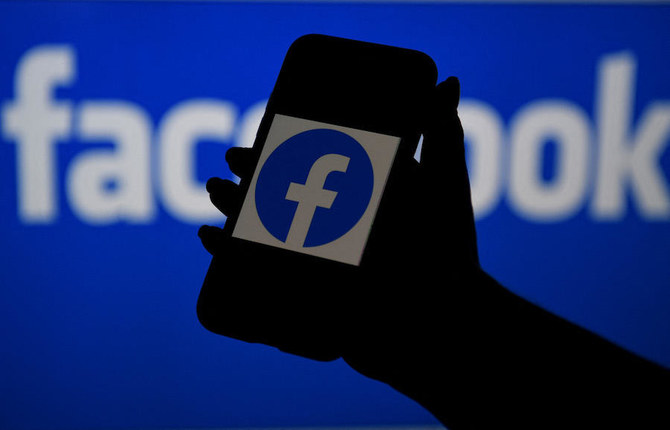
- Facebook’s head of news partnerships for Australia Andrew Hunter said the company was “focused on concluding commercial deals with a range of Australian publishers”
- Governments around the world are introducing laws to make the tech giants compensate media companies for the links that drive readers — and advertising revenue — to their platforms
EU bans 4 more Russian media outlets from broadcasting in the bloc, citing disinformation

- The EU has already suspended Russia Today and Sputnik among several other outlets since February 2022
BRUSSELS: The European Union on Friday banned four more Russian media outlets from broadcasting in the 27-nation bloc for what it calls the spread of propaganda about the invasion of Ukraine and disinformation as the EU heads into parliamentary elections in three weeks.
The latest batch of broadcasters consists of Voice of Europe, RIA Novosti, Izvestia and Rossiyskaya Gazeta, which the EU claims are all under control of the Kremlin. It said in a statement that the four are in particular targeting “European political parties, especially during election periods.”
Belgium already last month opened an investigation into suspected Russian interference in June’s Europe-wide elections, saying its country’s intelligence service has confirmed the existence of a network trying to undermine support for Ukraine.
The Czech government has imposed sanctions on a number of people after a pro-Russian influence operation was uncovered there. They are alleged to have approached members of the European Parliament and offered them money to promote Russian propaganda.
Since the war started in February 2022, the EU has already suspended Russia Today and Sputnik among several other outlets.
Israeli soldiers post abusive videos despite army’s pledge to act: BBC analysis

- The BBC analyzed 45 photos and videos posted online by Israeli soldiers that showed Palestinian prisoners in the West Bank being abused and humiliated
LONDON: Israeli soldiers continue to post videos of abuse against Palestinian detainees despite a military pledge to take action against the perpetrators, analysis by the BBC has found.
The broadcaster said it had analyzed 45 photos and videos posted online by Israeli soldiers that showed Palestinian prisoners in the West Bank being abused and humiliated. Some were draped in Israeli flags.
Experts say the footage and images, which showed Palestinians being stripped, beaten and blindfolded, could breach international law and amount to a war crime.
The Israel Defense Forces said some soldiers had been disciplined or suspended for “unacceptable behavior” but did not comment on the individual cases identified by the BBC.
The most recent investigation into social media misconduct by Israeli soldiers follows a previous inquiry in which BBC Verify confirmed Israeli soldiers had filmed Gazan detainees while beating them and then posted the material on social platforms.
The Israeli military has carried out arbitrary arrests across Gaza and the West Bank, including East Jerusalem, since the Hamas attack on Oct. 7. The number of Palestinian prisoners in the West Bank has since risen to more than 7,060 according to the Commission of Detainees’ Affairs and the Palestinian Prisoner Society.
Ori Givati, spokesperson for Breaking the Silence, a non-governmental organization for Israeli veterans working to expose wrongdoing in the IDF, told the BBC he was “far from shocked” to hear the misconduct was ongoing.
Blaming “current far-right political rhetoric in the country” for further encouraging the abuse, he added: “There are no repercussions. They [Israeli soldiers] get encouraged and supported by the highest ministers of the government.”
He said this played into a mindset already subscribed to by the military: “The culture in the military, when it comes to Palestinians, is that they are only targets. They are not human beings. This is how the military teaches you to behave.”
The BBC’s analysis found that the videos and photos it examined were posted by 11 soldiers of the Kfir Brigade, the largest infantry brigade in the IDF. None of them hid their identity.
The IDF did not respond when the BBC asked about the actions of the individual soldiers and whether they had been disciplined.
The BBC also attempted to contact the soldiers on social media. The organization was blocked by one, while none of the others responded.
Mark Ellis, executive director of the International Bar Association, urged an investigation into the incidents shown in the footage and called for the IDF to discipline those involved.
In response to the BBC’s investigation, the IDF said: “The IDF holds its soldiers to a professional standard … and investigates when behavior is not in line with the IDF’s values. In the event of unacceptable behavior, soldiers were disciplined and even suspended from reserve duty.
“Additionally, soldiers are instructed to avoid uploading footage of operational activities to social media networks.”
However, it did not acknowledge its pledge to act on BBC Verify’s earlier findings in Gaza, according to the broadcaster.
4 journalists killed in Gaza as death toll climbs above 100

- 104 Palestinian media workers reported dead, along with 3 Lebanese and 2 Israelis
LONDON: The Gaza Media Authority on Thursday said that four journalists had been killed in an Israeli airstrike, bringing the total number of journalists killed in the conflict to more than 100.
The victims were identified as Hail Al-Najjar, a video editor at the Al-Aqsa Media Network; Mahmoud Jahjouh, a photojournalist at the Palestine Post website; Moath Mustafa Al-Ghefari, a photojournalist at the Kanaan Land website and Palestinian Media Foundation; and Amina Mahmoud Hameed, a program presenter and editor at several media outlets, according to the Anadolu Agency.
The Gaza Media Office said the four were killed in an Israeli airstrike, but did not provide additional details on the circumstances surrounding their deaths.
A total of 104 Palestinian journalists have been killed since the conflict began on Oct. 7. Two Israeli and three Lebanese media workers also have been killed.
The latest loss adds to the already heavy toll on media workers, with the Committee to Protect Journalists saying the Gaza conflict is the deadliest for journalists and media workers since it began keeping records.
Israel is continuing its offensive on Gaza despite a UN Security Council resolution demanding an immediate ceasefire.
On Thursday, South Africa, which has brought a case accusing Israel of genocide to the International Court of Justice, urged the court to order Israel to halt its assault on Rafah.
According to Gaza medical authorities, more than 35,200 Palestinians have been killed, mostly women and children, and over 79,200 have been injured since early October when Israel launched its offensive following an attack by Hamas.
Russia outlaws SOTA opposition news outlet

- Authorities said outlet tries to destabilize the socio-political situation in Russia
- Move could criminalize SOTA content and puts its reporters at risk of arrest
LONDON: Russia declared opposition media outlet SOTA “undesirable” on Thursday, a move that could criminalize the sharing of its content and put its reporters at risk of arrest.
Authorities in Russia have declared dozens of news outlets, think tanks and non-profit organizations “undesirable” since 2015, a label rights groups say is designed to deter dissent.
In a statement, Russia’s Prosecutor General accused SOTA of “frank attempts to destabilize the socio-political situation in Russia” and “create tension and irritation in society.”
“Such activities, obviously encouraged by so-called Western inspirers, have the goal of undermining the spiritual and moral foundations of Russian society,” it said.
It also accused SOTA of co-operating with TV Rain and The Insider, two other independent Russian-language outlets based outside of the country that are linked to the opposition.
SOTA Project, which covers opposition protests and has been fiercely critical of the Kremlin, denied it had anything to do with TV Rain and The Insider and rejected the claims.
But it advised its followers in Russia to “remove reposts and links” to its materials to avoid the risk of prosecution. SOTA’s Telegram channel has around 137,000 subscribers.
“Law enforcement and courts consider publishing online to be a continuing offense. This means that you can be prosecuted for reposts from 2023, 2022, 2021,” it said.
SOTA Project was born out of a split with a separate news outlet called SOTAvision, which still covers the opposition but distanced itself from the prosecutors’ ruling on Thursday.
Since launching its offensive in Ukraine, Moscow has waged an unprecedented crackdown on dissent that rights groups have likened to Soviet-era mass repression.
Among other organizations labelled as “undesirable” in Russia are the World Wildlife Fund, Greenpeace, Transparency International and Radio Free Europe/Radio Liberty.
OpenAI strikes deal to bring Reddit content to ChatGPT

- Deal underscores Reddit’s attempt to diversify beyond its advertising business
- Content will be used to train AI models
LONDON: Reddit has partnered with OpenAI to bring its content to popular chatbot ChatGPT, the companies said on Thursday, sending the social media platform’s shares up 12 percent in extended trade.
The deal underscores Reddit’s attempt to diversify beyond its advertising business, and follows its recent partnership with Alphabet to make its content available for training Google’s AI models.
ChatGPT and other OpenAI products will use Reddit’s application programming interface, the means by which Reddit distributes its content, following the new partnership.
OpenAI will also become a Reddit advertising partner, the company said.
Ahead of Reddit’s March IPO, Reuters reported that Reddit struck its deal with Alphabet, worth about $60 million per year.
Investors view selling its data to train AI models as a key source of revenue beyond Reddit’s advertising business.
The social media company earlier this month reported strong revenue growth and improving profitability in the first earnings since its market debut, indicating that its Google deal and its push to grow its ads business were paying off.
Reddit’s shares rose 10.5 percent to $62.31 after the bell. As of Wednesday’s close, the stock is up nearly 12 percent since its market debut in March.




